Dear brothers,
Greetings of the Easter season! After nearly three months of greeting used to both the fight against the pandemic virus, the preventive lockdown, and carrying out our mission within the limitations of it, we are slowly learning to be at ease with the COVID times. In Rome, we are getting back to a “new normal” life with some restrictions after 10 weeks of lockdown. In some countries the pandemic is only marching towards its peak. Certainly, what we do not know about the virus is more than what we know about it. However, there is reasonable awareness of the nature of the diffusion, conditions for recovery and the risks of infection. Let us be cautious about any eventual second or third wave of the pandemic that can cause more damage. Responsible physical distancing is still the best practice for not to get infected and not to infect others. COVID-19 virus will probably join the club of other viruses that are around us and threaten human life until a vaccine is readily available.
More than a dozen of our brothers tested COVID positive with some symptoms, but providence favoured them to come out of the illness except Fr. Julio Vivas González who was called home to the Father. Some of them shared of their missionary attitude of serving the Lord in all circumstances of their lives: in health, and in illness. In most missions, our brothers took initiatives to be present to the people in their struggle. It is good to look at the way we have handled the reality of the pandemic in each Major Organism. In the General Curia, there were moments such as sharing the household duties, special time for adoration and prayer, and more time for conversation at meals that strengthened the bond among ourselves.
We were also concerned about the increasing suffering of the world as the pandemic virus was spreading and became more compassionate to our neighbours (helping our staff, the two refugees in the General Curia and other vulnerable groups in Rome).
The world is already facing the impact of the global epidemic on the socio-economic sphere of human life. The immediate impact is on the livelihood of the poor and those who lost their jobs, though most of the sectors will have to deal with its impact. It is worth asking if we would want the world to return to the “old normal” way of life that neglected a good part of the children of God to continue the old manner of managing the co-existence of nations and peoples, to get used to the way the world’s resources are exploited and shared, and to keep on the same irresponsible way of taking care of our common home. The world needs to move to something better. On our part, we shall strive with all the people of good will to realize the dream of Jesus for the world that he termed “the Kingdom of God”. Humans need more honest dialogues to benefit from differences, more generative conversations on common issues, and more collective actions in favour of the common good to get closer to that dream. I would like to share with you some reflections to help us welcome this phase with courage that springs from our faith.
1. Trust rooted in our experience of the Risen Lord.Though we do not know how things are going to turn out, we know that God turns everything for the good of humanity that he saved in Christ (Rom 8:28). This fundamental attitude dispels panic and enable us to bless the Lord always (Ps 34:1) as Father Claret did.
2. Positive acceptance of the reality.We are bombarded with myriads of factual and fake messages and it calls for discrimination of the wheat from the chaff. Both exaggeration of the pandemic in apocalyptic proportions and a pollyannaish attitude of disregarding its damaging effect on human life do not help us to address the pandemic and its impact on us. I hope our brothers will assume healthy attitudes that will enable us to continue to radiate hope and evoke creative response among us and around us.
3. Faith-based reading on what is taking place in history.We humans seek to know the cause of events and make many interpretations and hypotheses whenever something new happens. There is abundance of news and views about the pandemic from historic, social, economic, medical, political, and biological perspectives. The age-old question of God and evil has also come to the fore looking for answers. During this pandemic, we also receive the same question that people raised to the psalmist amid suffering, “where is your God?” (Ps 42:4).
The pandemic has also shaken those who believe that science can predict and manage human problems without having recourse to God. Through the love revealed and gifted on the cross of Christ, we are able to find meaning and joy in welcoming life with its excitements and sufferings and in embracing death peacefully when our hour comes. Christian testimony of faith and service to the sick and the needy affirms the divine dignity of each person and the responsibility of the strong and the healthy to care for the weak and the sick even at the cost of their own lives. We have seen these values in action during this pandemic. The pandemic teaches us the necessary dialogue between faith and reason.
4. The values learnt during the pandemic.Though the suffering and death of many people all over the globe sadden us, we shall not miss many lessons we have learnt for life during this pandemic times. I was told by many of our brothers that they have improved their community life, have more time for brothers and for prayer, and have tried innovative ways to do mission. The pandemic has obliged the whole world to enter a kind of global retreat to introspect and reflect on human life which is often lived as in a roller coaster without the possibility to pose and reflect on more important values of life.
The interconnectedness of all creation and the responsibility of humans to care for one another and all creation became more evident in these days. The rest of creation (the environment, animals, birds, fish, etc.) seems to have relaxed and rejuvenated when humans were in lockdown. If we do not journey together and care for the well-being of everyone including nature, we will bear its tragic consequences together. The pandemic virus infecting humans all over the globe in a short time is a visible demonstration of what spiritual and psychological viruses have been infecting the human mind and spirit causing untold suffering to humanity. We should learn to keep a distance from such viruses consciously and disinfect our minds and hearts of selfish interests with the truth of the Gospel.
5. Global vision and collective action.The fragmentation of humanity and the competition among nations for economic hegemony have proved fatal for humanity during the worldwide spread of the pandemic; only collective action bore good results. The future of humanity depends on the cooperation, collaboration, and collective effort of all to grow together as one human family. Our call in the Church and the world is to intentionally live and give witness to unity in diversity through our fraternal life and missioning in community. I am convinced that our missionary future depends on how we foster an Integral Claretian ecology that harmonizes the universal and local realities and enriches mutually through sharing resources and personnel in the Congregation.
6. Facing the challenges together.We expect a hard time ahead in the post-COVID period in taking care of our needs in different parts of the Congregation. We shall not lose heart remembering the word of God: “fear not, I am with you” (Is 41:10). We need to make many sacrifices just as our brothers and sisters in secular professions are obliged to do to face the crisis. We shall consciously opt for simplicity, healthy austerity, and hard work to address the difficult times ahead.
We will have to evaluate the situation in each of the Major Organisms and accommodate our budgets by prioritizing what is most important and necessary. If we were to go hungry, let us all embrace it together. Similarly, we shall be sensitive towards those around us with the attitude of Christ who taught us the secret of abundance: It is in giving that we receive (cf. Lk 6: 38). We shall let the Lord do with our lives what He does with the bread of the Eucharist: bless, break, and share to give life to others.
7. Walking in the Spirit. We have been reading the accounts of the early Church in this Easter season. The fragile, persecuted early Church had no idea of where they were heading. They trusted the guidance of the Holy Spirit whom Jesus had promised to be with them and help them for ever (cf. Jn 14:16). The primacy of the Spirit of Christ in their lives made all the difference for the timid and insecure apostles who went all over the world to proclaim the Good News. Our Founder and our martyr brothers have left heroic testimony of the truth of the Gospel to us. As we are going to enter the phase of the preparation of the XXVI General Chapter shortly, let us surrender to the Spirit of Christ, and welcome the future with open minds, loving hearts and brave hands without looking for worldly securities. I commend all of us to the Immaculate Heart of our Blessed Mother to guide us through this historical COVID-19 times.
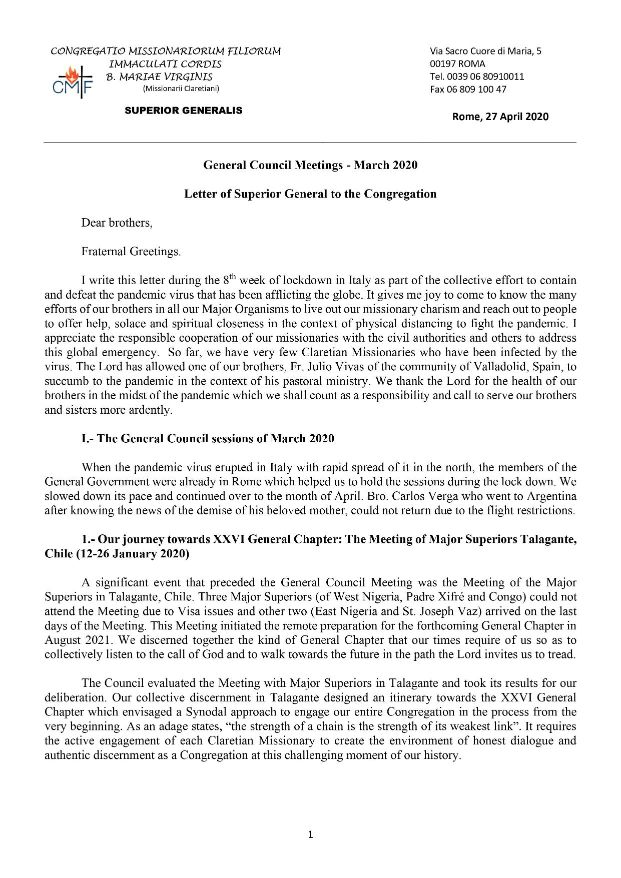
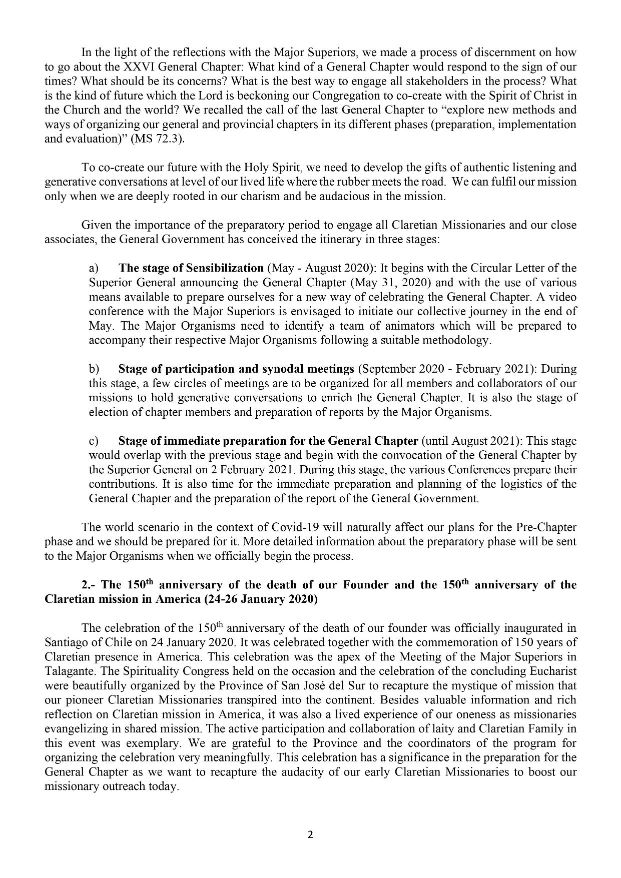
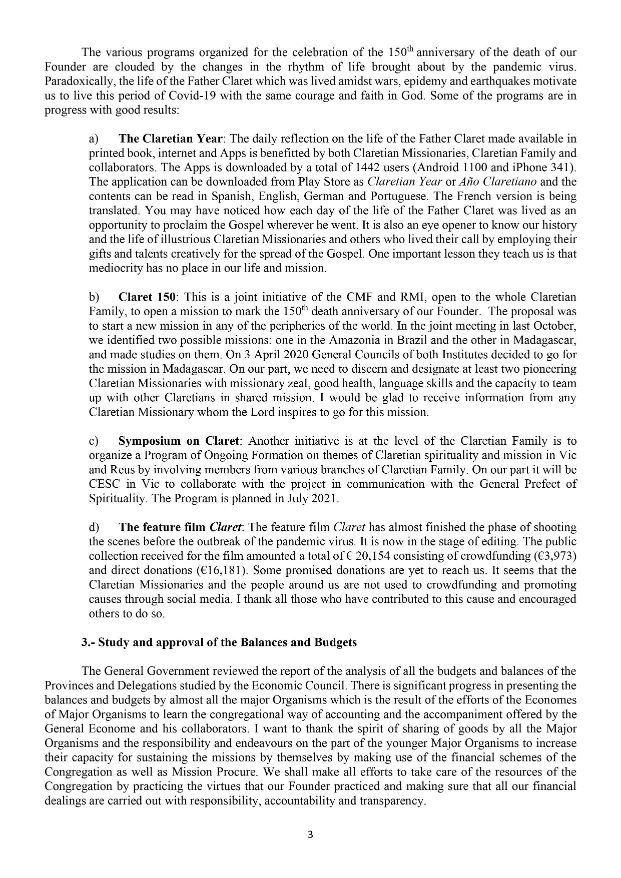
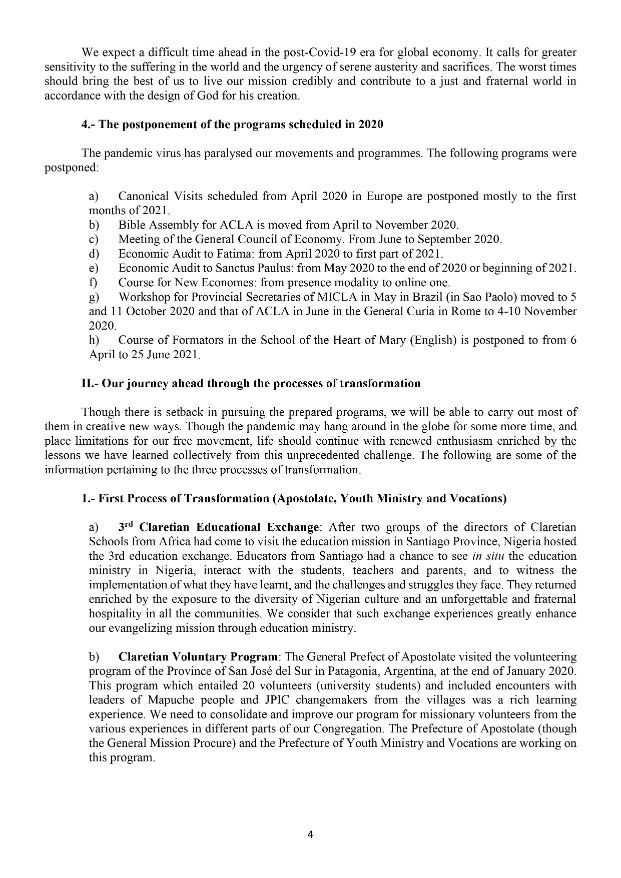
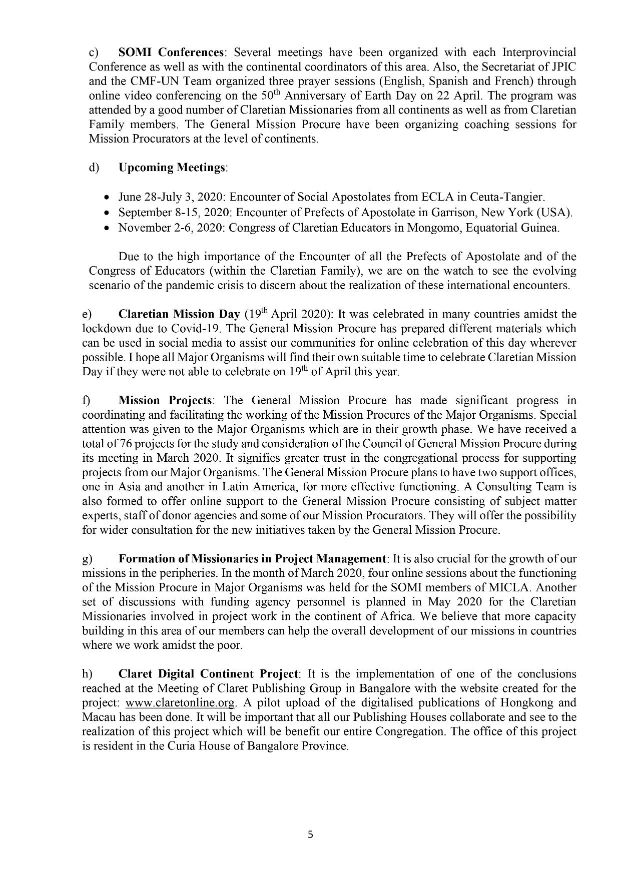
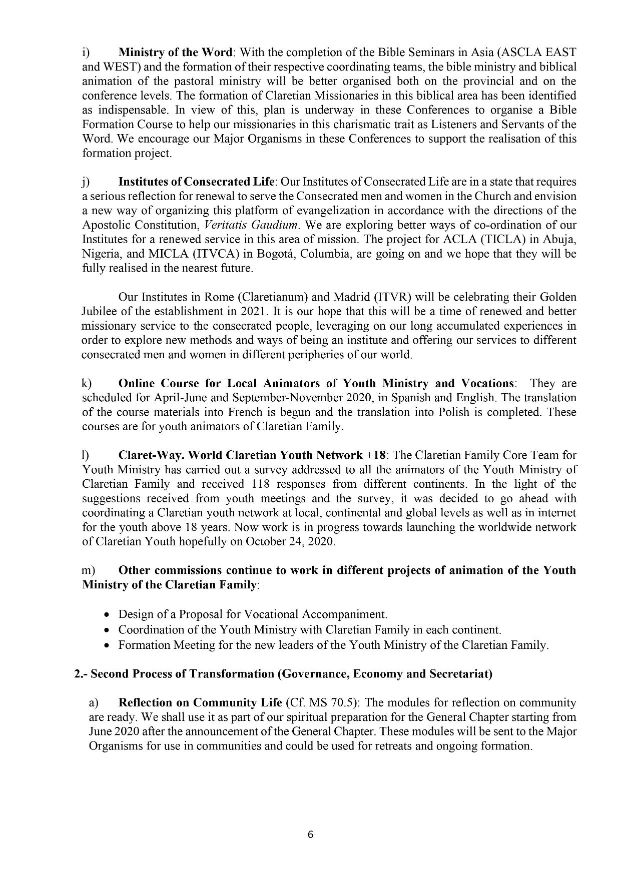
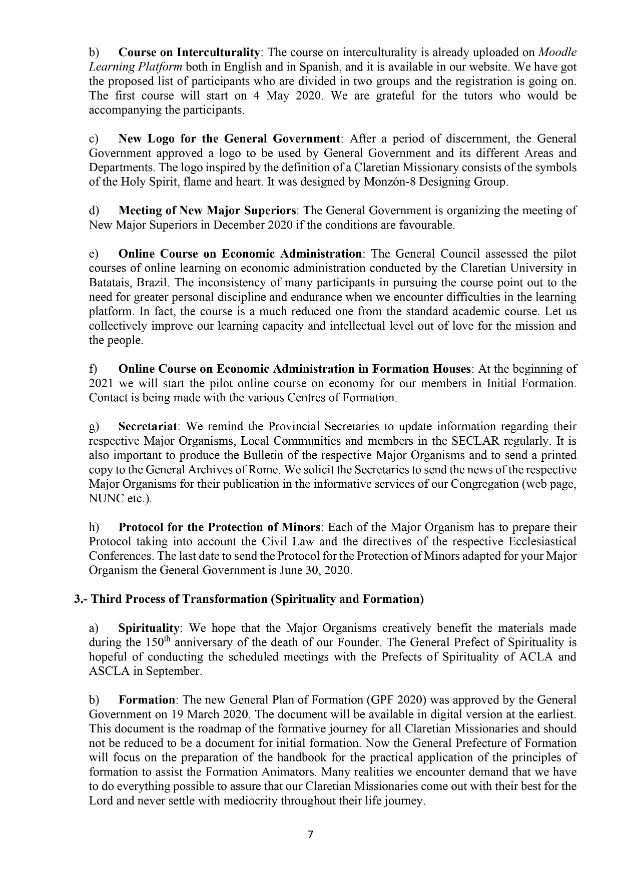
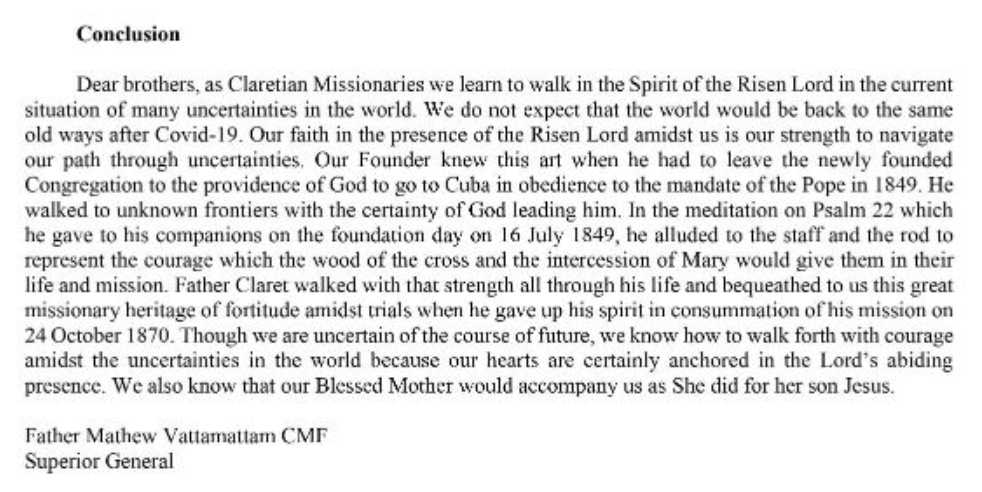
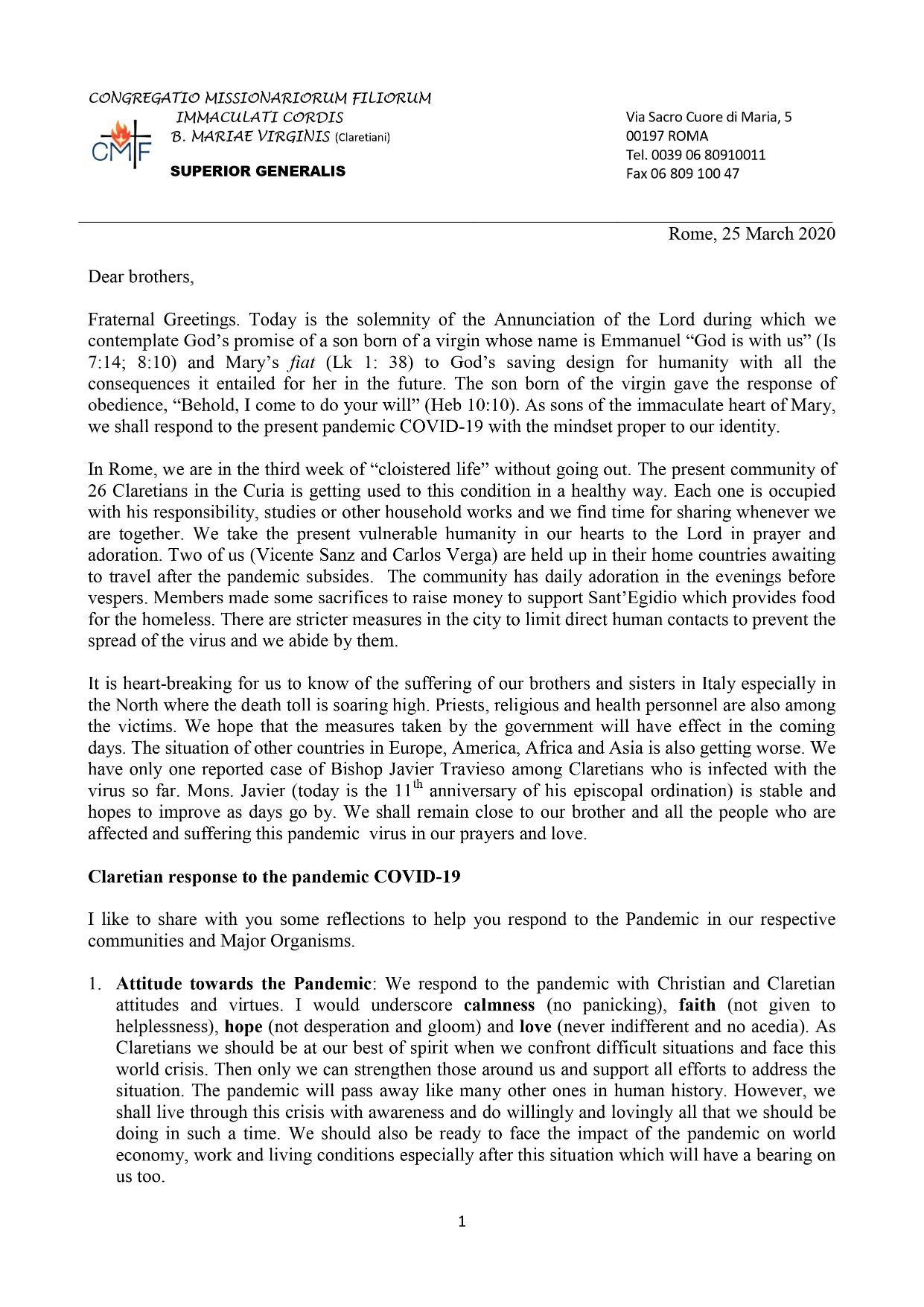
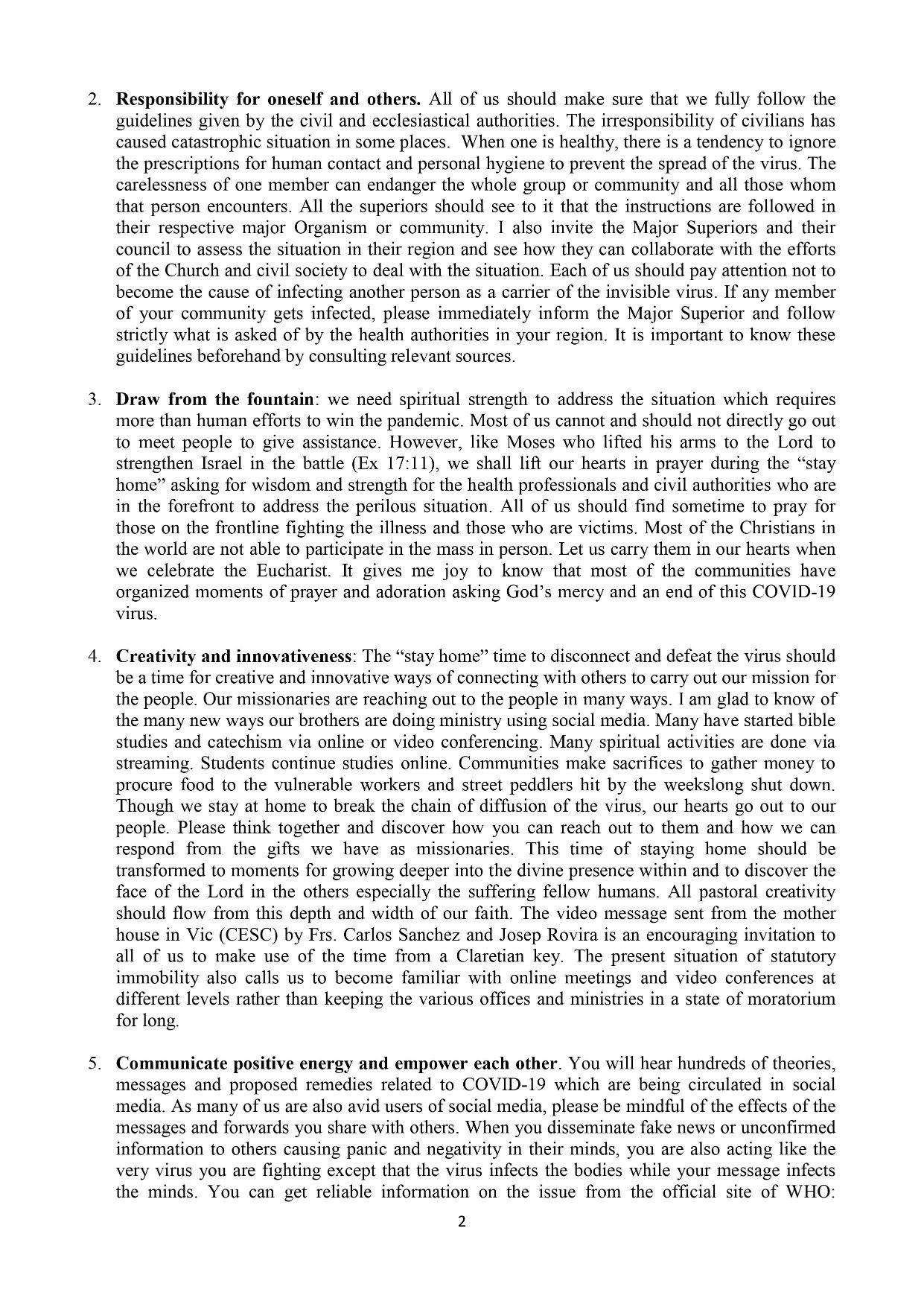
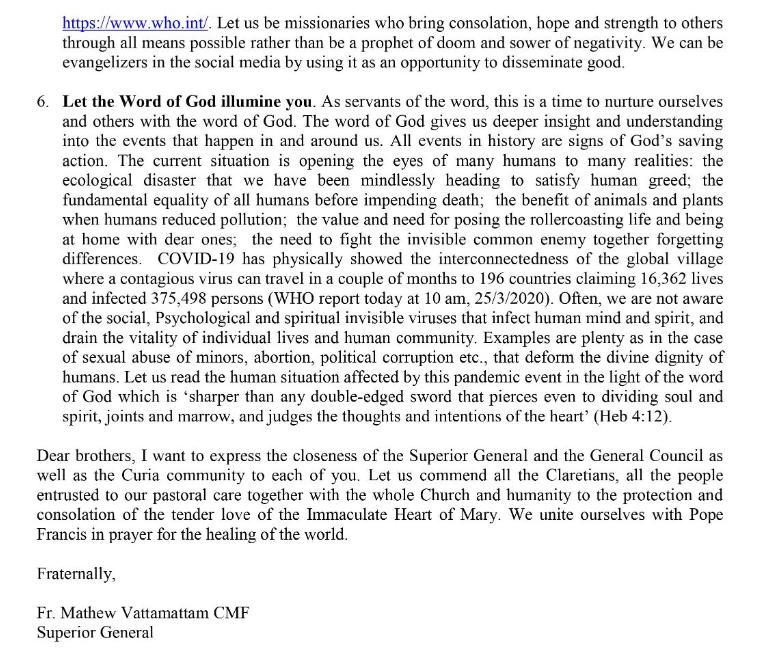
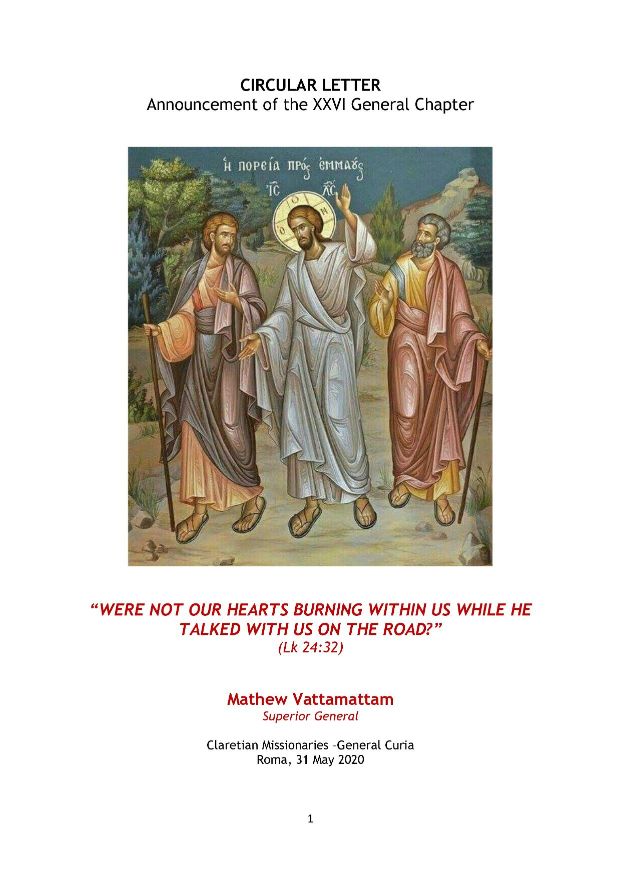
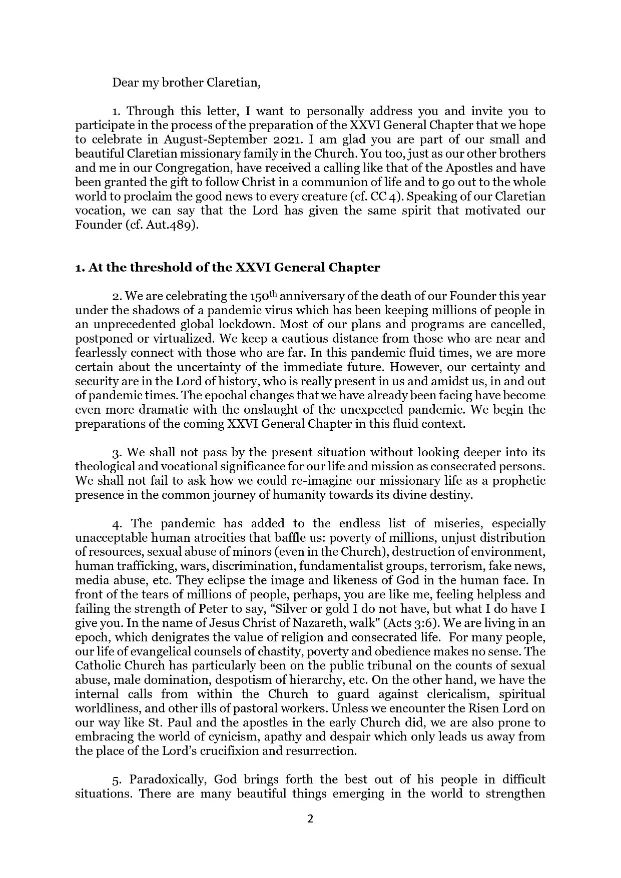
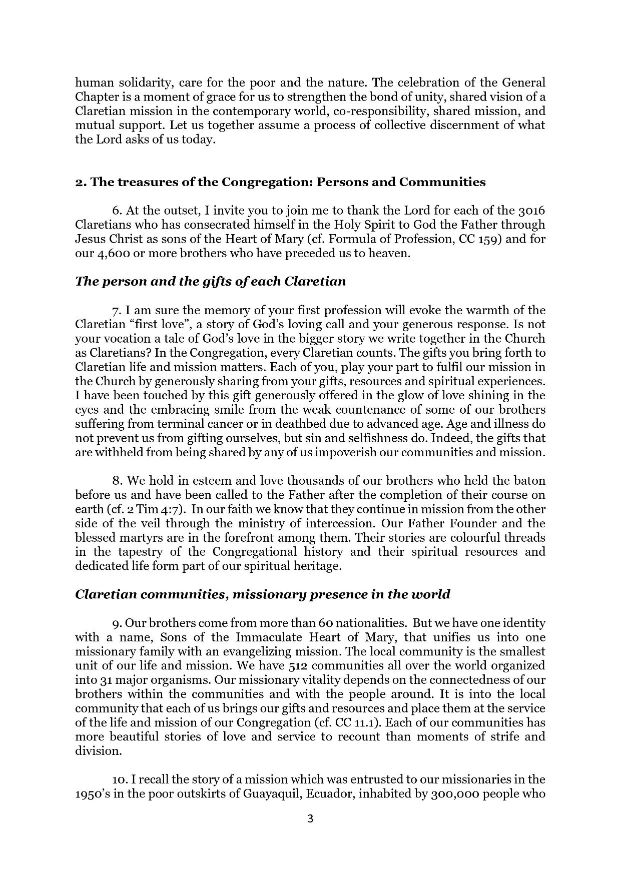
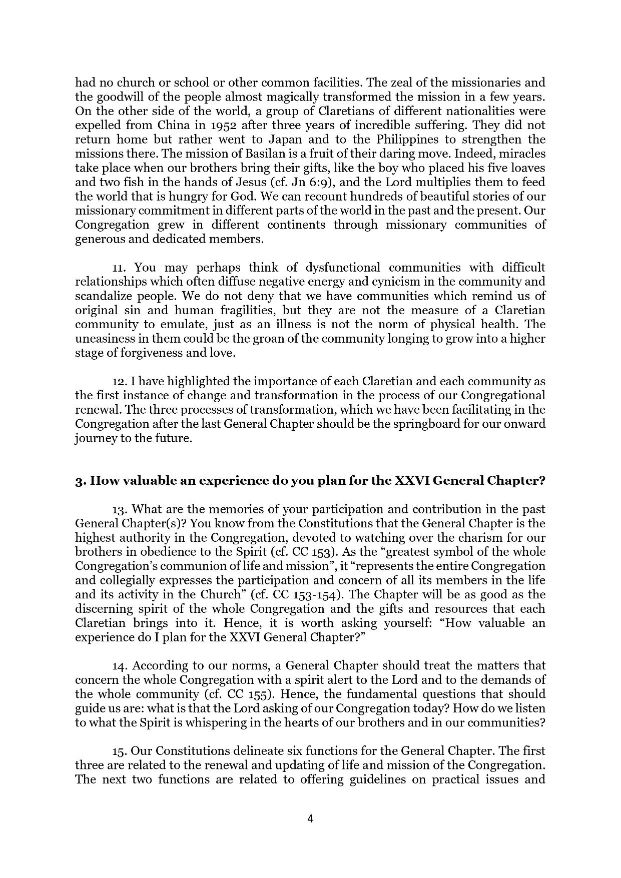
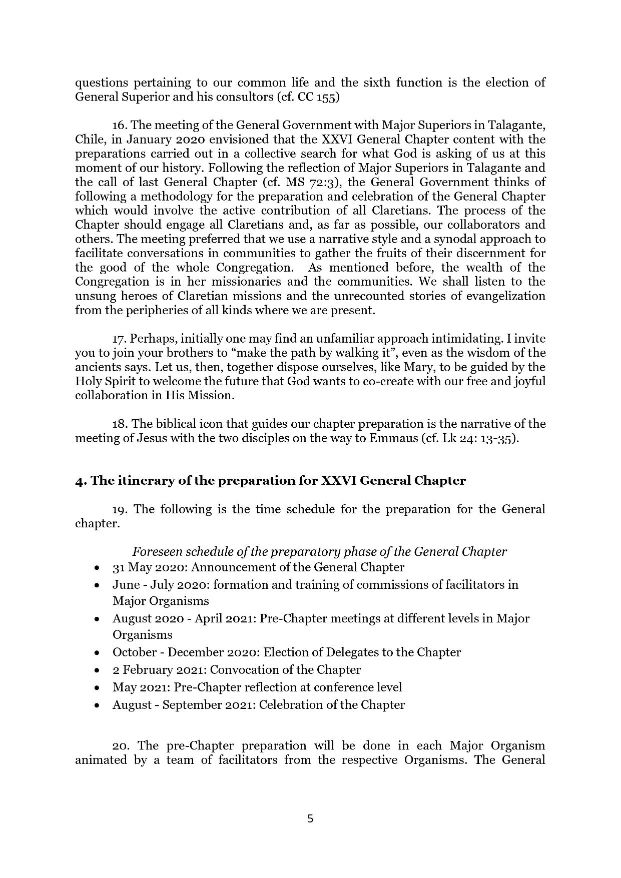
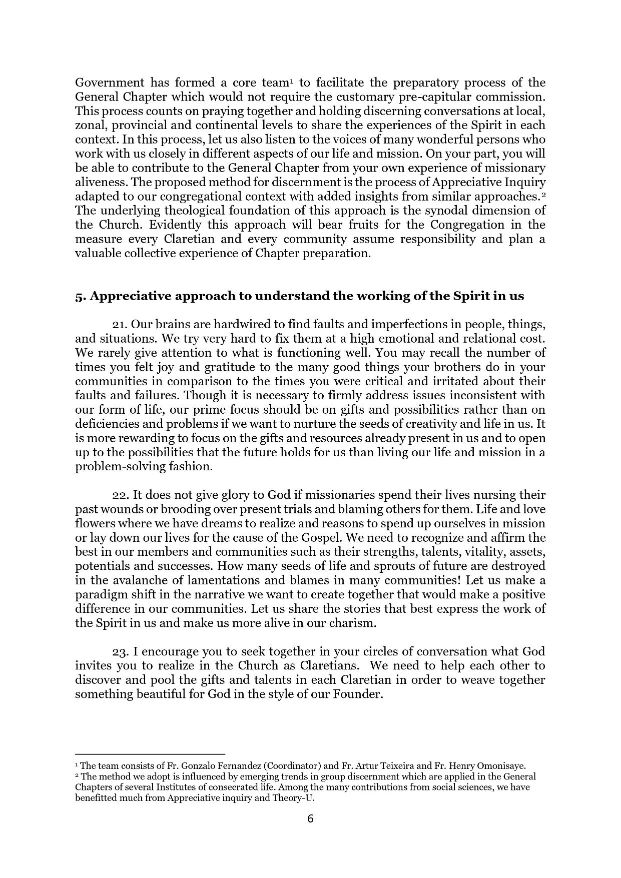
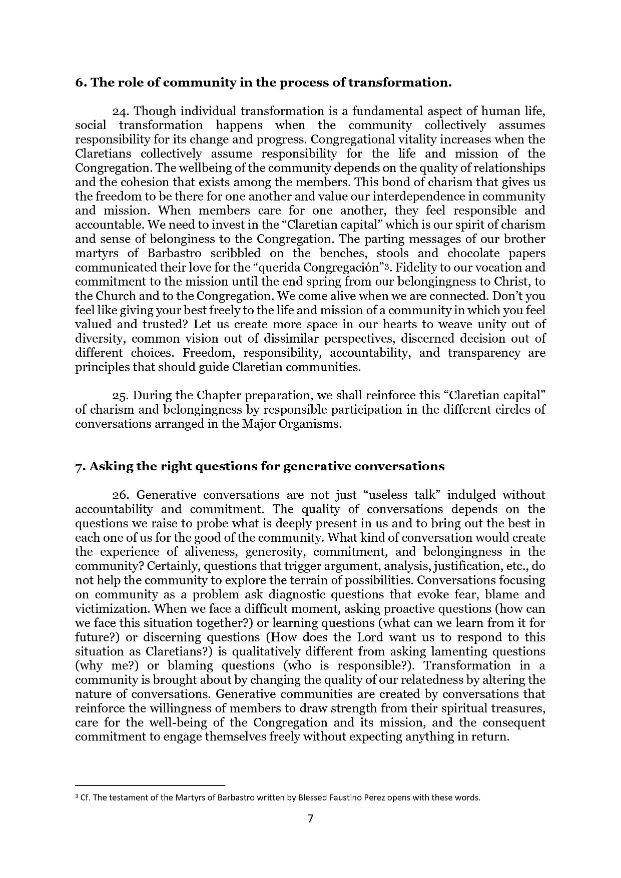
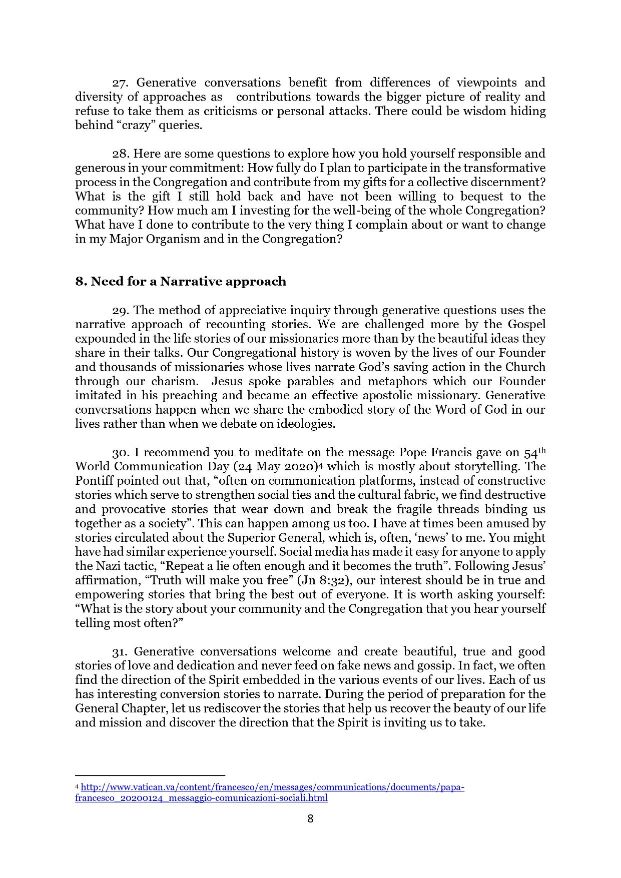
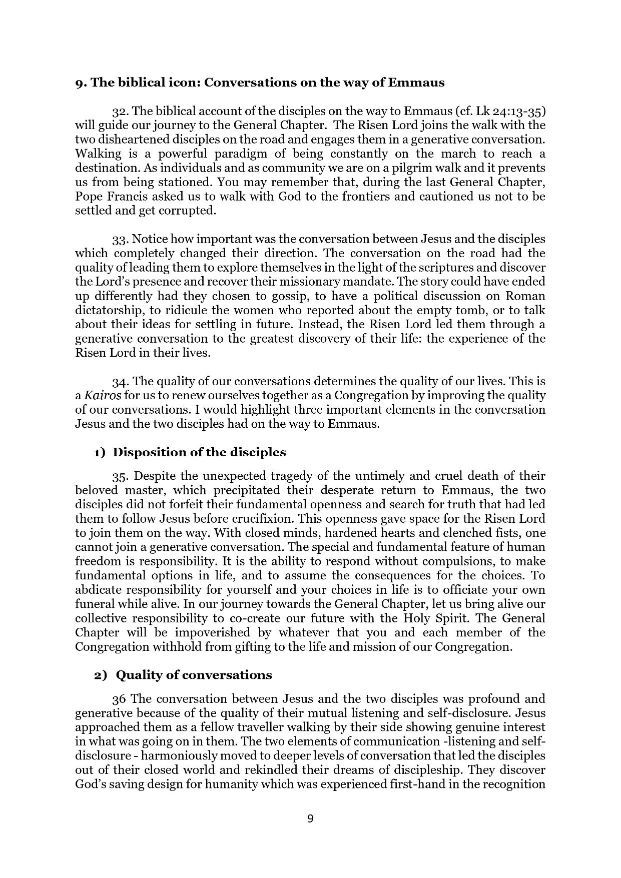
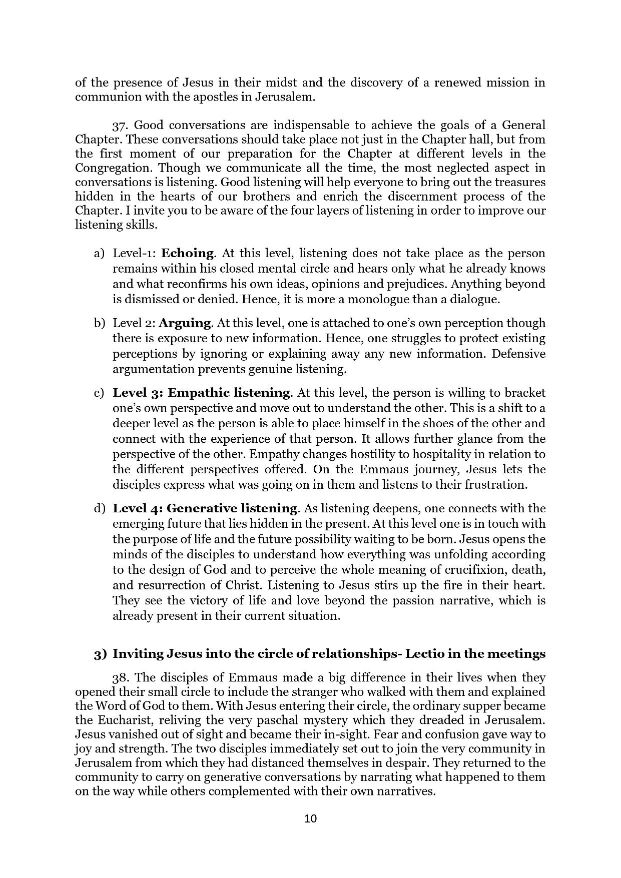
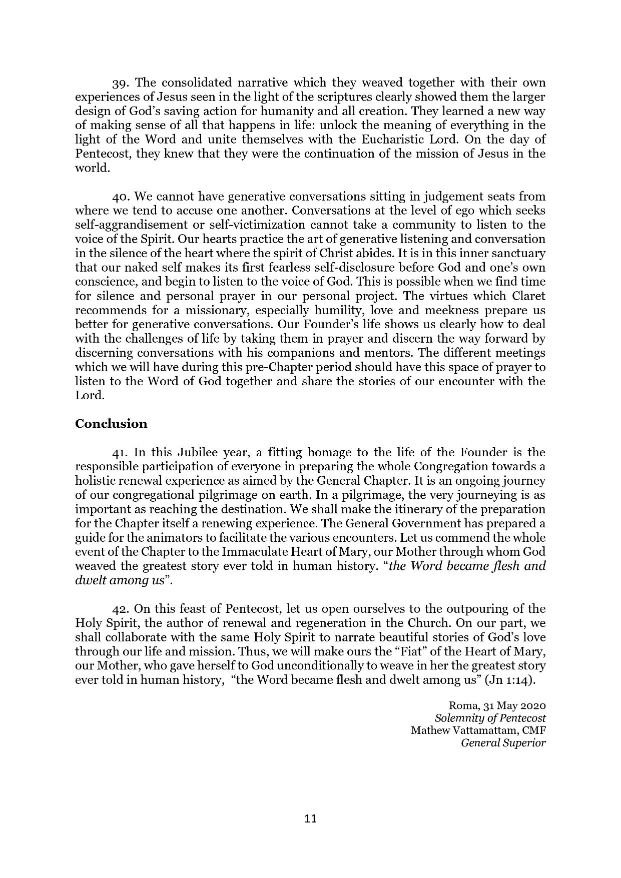
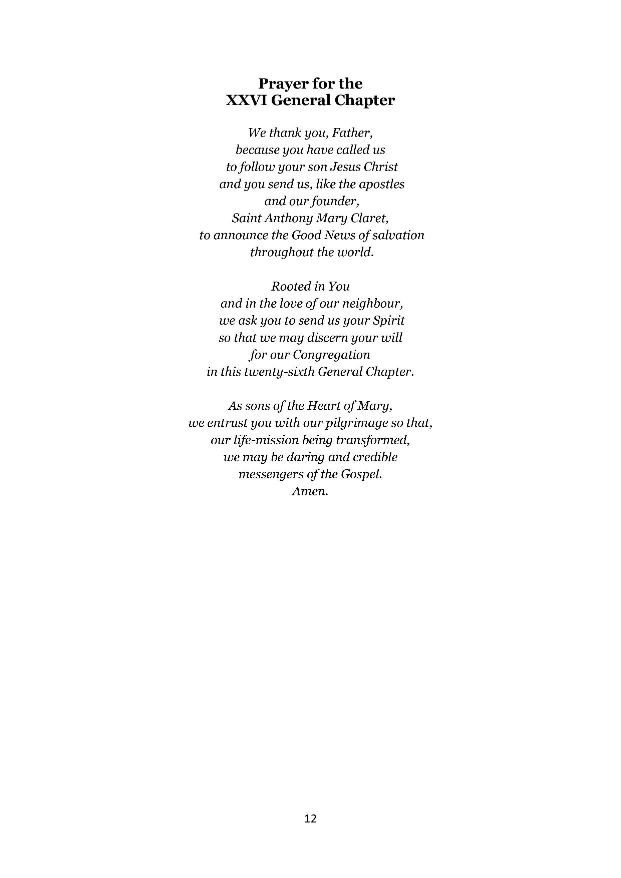
Fraternally,
Fr. Mathew Vattamattam CMF
Superior General
Rome 18 May 2020
